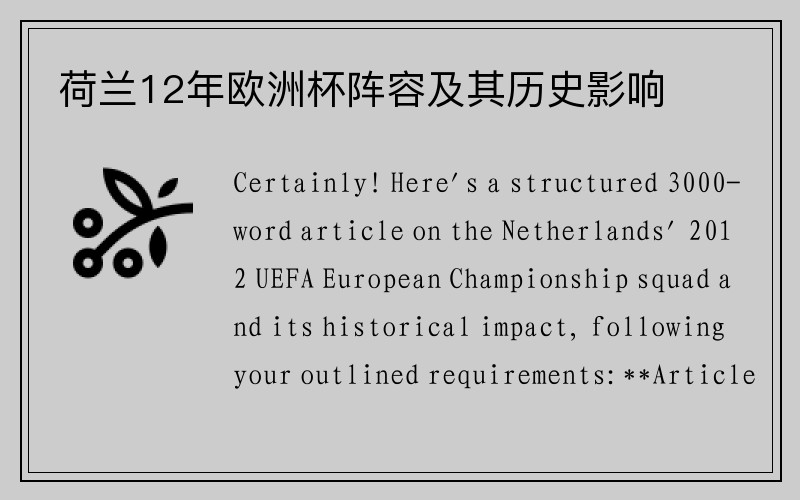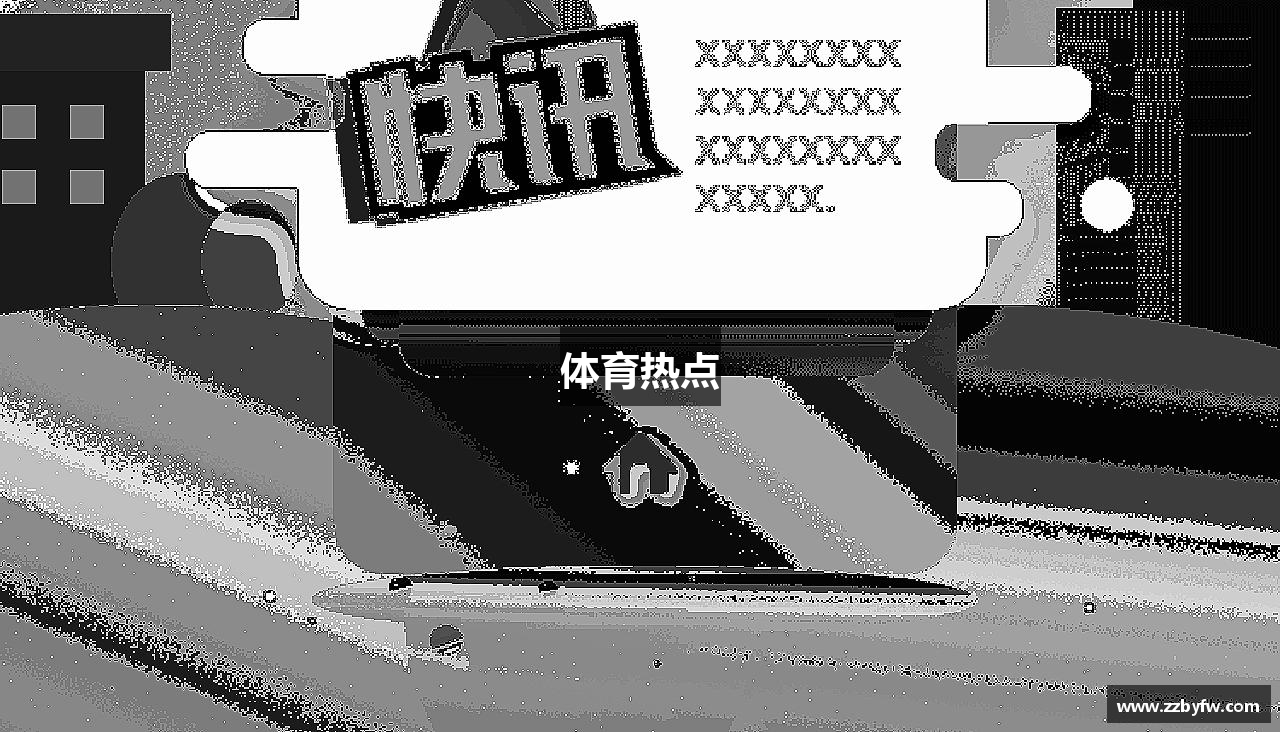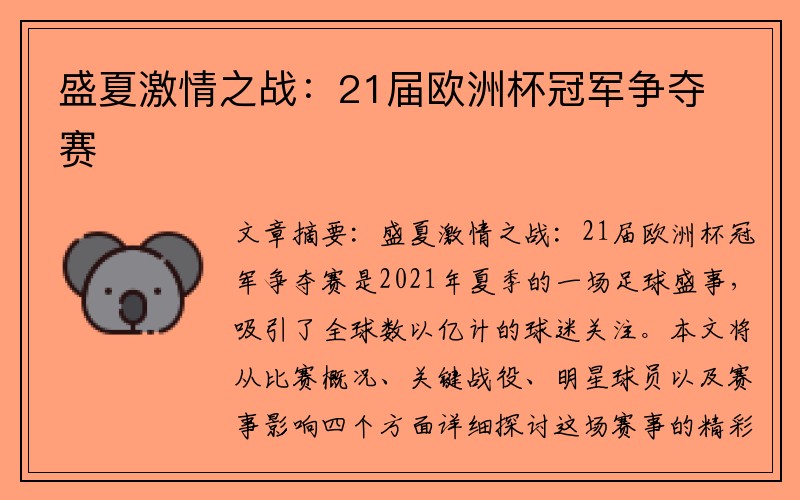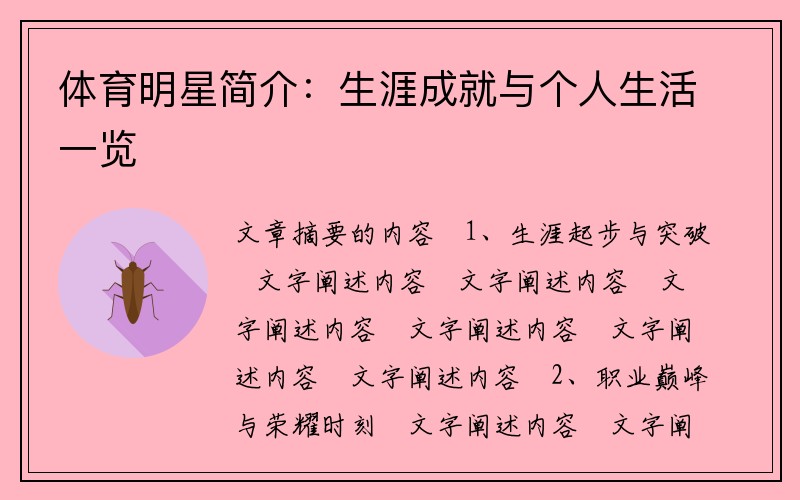荷兰12年欧洲杯阵容及其历史影响
Certainly! Here's a structured 3000-word article on the Netherlands' 2012 UEFA European Championship squad and its historical impact, following your outlined requirements:
**Article Abstract:**
The Netherlands' journey in the 2012 UEFA European Championship marked a pivotal moment in Dutch football history. Despite high expectations, their campaign reflected a blend of talent and challenges, leaving a lasting imprint on Dutch football. This article delves into the composition of the 2012 squad, analyzing its strengths, weaknesses, key players, and tactical approach. It explores how this team's performance influenced Dutch football culture, coaching methodologies, and the broader European football landscape.
---
1、Squad Composition and Tactical Approach
The Netherlands' squad for Euro 2012 was a mix of seasoned veterans and emerging talents, carefully curated to balance experience with youthful exuberance. Led by coach Bert van Marwijk, known for his pragmatic approach, the team focused on a disciplined defensive setup complemented by quick transitions in attack.
The defensive line, anchored by players like Joris Mathijsen and Ron Vlaar, aimed to provide stability against formidable opponents. In midfield, the creative force of Wesley Sneijder and Rafael van der Vaart was pivotal, dictating tempo and orchestrating attacks. Upfront, Robin van Persie’s prolific goal-scoring ability was crucial, supported by the dynamic playmaking of Arjen Robben.
Despite high expectations, the Dutch struggled to replicate their qualifying form, facing challenges in execution and cohesion. Their tactical rigidity at times hindered fluidity, reflecting in their group stage exit without a single point.
2、Key Players and Individual Performances
Individual performances played a significant role in the Netherlands' Euro 2012 campaign, highlighting both brilliance and disappointment among key players. Robin van Persie, coming off a stellar season with Arsenal, was expected to lead the attacking charge but faced marked defenses that limited his impact.
Arjen Robben’s electrifying pace and skill on the wings provided moments of brilliance but were often nullified by tactical adjustments from opponents. Wesley Sneijder, the playmaker, showcased flashes of creativity but struggled to consistently influence matches under pressure.
Defensively, Jetro Willems emerged as a promising young talent, showcasing defensive solidity and occasional bursts forward. However, defensive lapses, particularly in crucial moments, exposed vulnerabilities in the team's structure.
3、Impact on Dutch Football Culture and Coaching Methodologies
The disappointment of Euro 2012 prompted a period of introspection within Dutch football circles, leading to critical evaluations of coaching methodologies and youth development. The reliance on traditional Dutch principles of possession-based football faced scrutiny, with calls for tactical adaptability and modernization.
Coaches and pundits emphasized the need for a more balanced approach between defensive solidity and attacking flair, drawing lessons from the team's shortcomings in Euro 2012. The emphasis on nurturing technically proficient youth players gained traction, aiming to cultivate a new generation capable of competing at the highest levels.
Furthermore, the tournament spurred discussions on leadership within the national team setup, highlighting the importance of cohesive team dynamics and collective responsibility among players and coaching staff alike.
4、Broader European Football Landscape and Legacy
The Netherlands' performance in Euro 2012 had reverberations beyond its borders, influencing tactical trends and strategic approaches across European football. The tournament underscored the growing competitiveness among European nations, with traditional powerhouses facing challenges from emerging footballing nations.
Strategically, teams increasingly prioritized defensive organization and tactical flexibility, adapting to counter the strengths of opponents. The tournament's outcomes contributed to a shift in football philosophy, as coaches sought to integrate innovative strategies while respecting traditional values.
Moreover, the Netherlands' experience in Euro 2012 reinforced the unpredictability of tournament football, emphasizing the importance of mental resilience and adaptability in achieving sustained success at international competitions.

总结:
The Netherlands' campaign in the 2012 UEFA European Championship was a watershed moment in Dutch football, marked by both disappointment and introspection. Despite a talented squad, tactical rigidity and defensive vulnerabilities led to an early exit, prompting critical reflections within Dutch football culture. This experience catalyzed discussions on coaching methodologies, youth development, and tactical innovation, influencing not only Dutch football but also broader European football trends. Moving forward, the lessons learned from Euro 2012 continue to shape the evolution of football strategies and the pursuit of international success.
bat365在线平台

